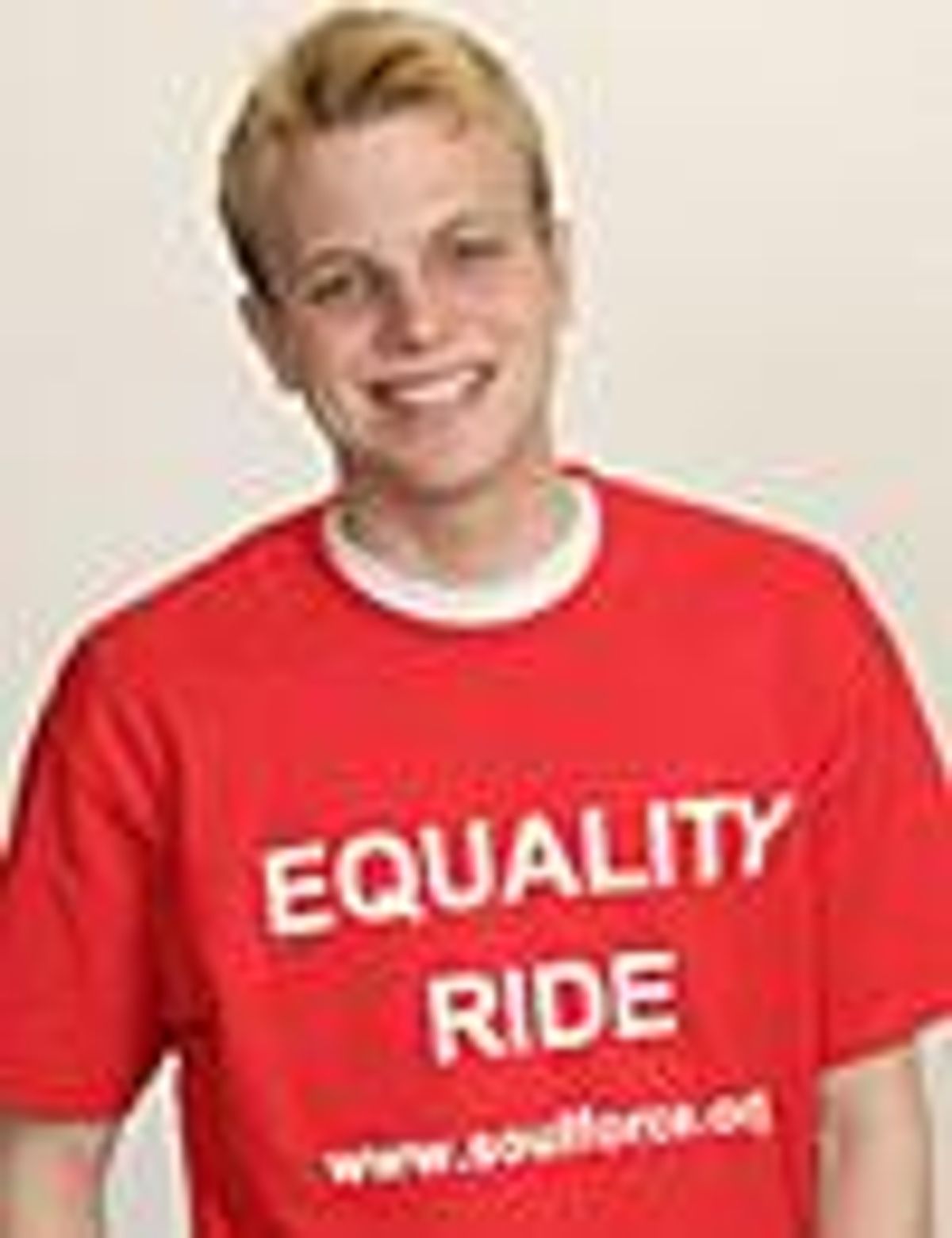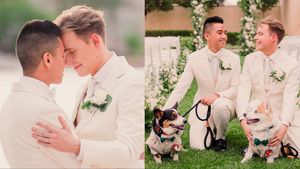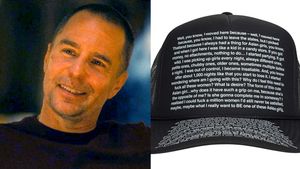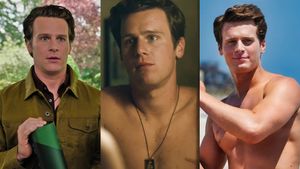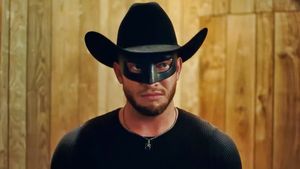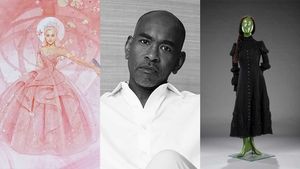In May 1961 a
young man came to Washington, D.C., for the first time to
embark on the Freedom Rides, a tour through the South that
challenged the unjust laws of segregation and changed
the conscience of the United States. Now a congressman
from Atlanta, John Lewis traveled with other
visionaries through Anniston and Birmingham, Ala., with a
goal of reaching New Orleans on the anniversary of the
Brown v. The Board of Education Supreme
Court decision on May 17.
The Freedom Rides
sought to test enforcement of the Supreme Court's
ruling in the 1946 Irene Moore case, declaring that the
segregation of interstate travelers was
unconstitutional. Along the way John Lewis and the
other Freedom Riders met with horrible violence and were
eventually arrested in Jackson, Miss., where they were
sent to prison for 60 days.
When I first
learned about the actions of congressman Lewis as a high
school student, I was inspired. I was awed by the courage of
his convictions and the determination of his spirit to
bring an end to the suffering caused by racism in the
United States.
After I came out
as gay in my junior year of high school, I dreamed of
one day participating in a similar journey for justice.
During my college
years at Northwestern University, I was frustrated by
the lack of opportunities for young adults to pursue justice
for gay and lesbian people. The GLBT rights movement
does a terrific job of lobbying Congress, organizing
the electorate around pertinent voter initiatives, and
engaging in important and meaningful judicial advocacy. But
what is lacking in the movement for GLBT justice is
the rudimentary aspect of activism that should be the
cornerstone of every major justice movement as it was
during the struggle for civil rights.
At Northwestern
University I continually asked myself, Where are our
sit-ins? Where are our Freedom Rides? Why aren't
today's young adults pouring out into the
streets and demanding equality through their words,
and indeed their very presence? My frustration
fostered in me a resolve to do something. Rather than
just thinking about and dreaming about a sustained
movement of young adults fighting for GLBT justice, I
would create the opportunity I sought for others and myself.
But I wasn't sure what that would be.
I asked myself,
What does a sit-in for gay and lesbian rights look
like? What does a Freedom Ride for gay and lesbian
equality entail? Unlike the struggle for
African-American equality, there are no lunch counters
where we are refused service. There aren't bus
stations where we can't sit with our friends.
There aren't drinking fountains for straights
and drinking fountains for gays. This is surely the source
of the comfort we feel living with GLBT
discrimination.
Ultimately, it
wasn't until my sophomore year of college that my
idea for a youth-driven stand for GLBT justice took
form. The concept came to me in the most unlikely of
places. I was in a bar in Boystown, the gay
neighborhood of Chicago, and approached an attractive young
man whom I discovered was a Wheaton College student.
Wheaton is a conservative Christian college just west
of Chicago. So I asked, "What is it like to be
gay and a student at Wheaton?"
He looked at me
and responded, "Well, no one knows I am gay. If I
came out at Wheaton, I could get kicked out of
school."
"That's a horrible policy," I said.
"We should do something about this."
"Actually,
I think it's a good policy," he said.
"I think it's a sin to be gay."
I was shocked.
Here I am talking to a gay man in a gay bar in Chicago. He
was raised by fundamentalist parents in a fundamentalist
community and now goes to a fundamentalist school. He
has learned his whole life that being gay is sick and
sinful, yet invariably on a Friday night he finds
himself in a bar looking to be affirmed and loved. When he
hears my affirming message, he is unable to
internalize it because of a lifelong message of
condemnation.
I grew angry. It
was clear to me that the GLBT rights movement, in its
lack of determination to do activism, had failed this young
man. We hadn't gone into his family, into his
community, and into his school to send him the message
that God loves him without reservation just as he is.
After that night I knew the goal for young adults seeking
justice for GLBT people. We needed to help this young
man know the truth about himself and about God.
I set to work to
create the Soulforce Equality Ride, a two-month
nationwide journey that will take 35 young adults to 18
colleges that have policies banning the enrollment of
openly GLBT people. Over the next 51 days, 34 other
riders and I will visit schools like Brigham Young
University, West Point, and, most importantly, Wheaton to
talk about GLBT issues and call for change.
Last Friday,
March 10, we made our first stop, at Jerry Falwell's
Liberty University. Sadly, rather than allow us to
enter campus, the Reverend Falwell chose to have us
arrested. Twenty-four of us were charged with
trespassing, and another organizer and I were charged with
an additional count of inciting others to trespass.
Thankfully, a
majority of the schools we will be visiting are not
reacting with same level of hostility as the Reverend
Falwell's. Most of the schools have said we may
come onto campus, and nearly half of the
administrations have worked with us to create programming
around our visit.
On the eve of our
cross-country journey, the members of the Equality Ride
had the honor of meeting with Congressman John Lewis to
discuss our impending work. Lewis shared stories of
the Freedom Rides and words of support and
encouragement for our journey. We all left inspired and with
resolute spirits. Congressman Lewis told us that it was our
job as youth of today to get in the way, to get in
trouble--"necessary trouble," he
calls it--in order to move the struggle for gay and
lesbian rights forward. I believe the Soulforce
Equality Ride heeds that call and will do right by his
spirit of conviction and commitment to justice.
Over the next
weeks articles written by Equality Riders sharing the
experiences of our journey will appear here in The
Advocate online at Advocate.com. I hope that you
will follow our actions and support our efforts.
